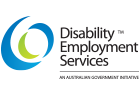
The world is waking up to the value of people living with neurodiversity, especially large Australian businesses and government departments who need people who look at problems differently and come up with creative solutions.
For instance, Telstra and NAB are actively hiring staff living with autism, as part of a push for neurodiversity in the workplace. Technology company DXC also runs a highly successful program to build skills and careers for people on the autism spectrum. So what exactly is neurodiversity, and how can employers benefit from hiring people who live with neurodiverse conditions?
What is neurodiversity?
Coined by Australian sociologist Judy Singer, the term neurodiversity describes a range of conditions that involve a different way of interacting with the world, including autism, attention deficit hyperactivity disorder, and learning difficulties such as dyslexia.
The combination of traits in these conditions can be both strengths and challenges. For instance, a person with autism may have high levels of concentration and great technical abilities, while someone with dyslexia might have advanced mechanical skills and spatial intelligence.
At the same time, people who are neurodiverse face a range of challenges in our environment, particularly with social communication, speech and non-verbal communication.
Neurodiversity, though, characterises these conditions and brain differences as simple variations of the human brain, rather than being a disorder or disability.
Non-conventional but great value
A few years ago Thomas, 25, had begun a Bachelor’s degree in IT but found the university environment really tough, despite being a highly motivated and intelligent student. Being on the autism spectrum, he experienced severe anxiety in social situations which made it hard for him to concentrate or feel confident in classes.
After signing up with atWork Australia, Thomas’s Job Coach, Jenny, knew immediately where he could find a job, referring him to the Untapped Group, a social enterprise that partners with technology company DXC to create commercially compelling employment opportunities for people with autism.
Thomas’s critical thinking skills were considered ideal for a Trainee Cyber Security Analyst role in DXC’s Dandelion program, which provides technical work experience opportunities to improve confidence, and team working skills.
The role was such a success that Thomas has now joined ANZ’s Spectrum Program, which recognises the talents of autistic people and provides a supportive environment for them. He’s been trained in cyber security, coding and testing roles and can expect a thriving career with the bank.
Strengths in different areas
Just like ANZ, employers of every size can expect many benefits to their business from hiring people living with neurodiversity.
Neurodiverse people tend to enjoy and are good at technical or analytical types of work, and in the right environment can demonstrate far higher levels of productivity than neurotypical employees.
Here are two great examples:
- When investment banking firm JPMorganChase completed a comparison of a neurodiverse team with a neurotypical team, the neurodiverse team achieved 48 percent higher productivity
- 30 participants in the DXC’s Dandelion program in software-testing roles at the Federal Government’s Department of Human Services demonstrated 30 percent higher productivity than other teams
People who live with neurodiversity are more productive because they have strengths in different areas, such as high levels of concentration, so they are hyper-focused on the task at hand.
Neurodiverse employees also display long-term memory skills, are detail-oriented, have an acute ability to see patterns and think visually, and show non-judgemental listening, loyalty and honesty.
Many benefits to employers
As an employer, there are clear benefits and competitive advantages to having employees who think differently.
A study by Curtin University in 2016 found that employing autistic adults benefited employees, employers and their organisations without incurring additional costs.
Attributes commonly associated with neurodiverse employees include:
- Creativity and innovation
- Lateral thinking
- Strategic analysis
- Bringing a ‘different perspective’
- Development of highly specialised skills
- Consistency in tasks once mastered
How we find jobs for people with neurodiversity
atWork Australia offers a practical, friendly, and free employment services for neurodivergent jobseekers, and our Job Coaches are experts at helping people living with neurodiverse conditions find good work. We know that neurodiverse people have an array of diverse talents and strengths that benefit the workforce.
We’ve matched hundreds of people living with neurodiverse conditions with employers who value their creativity, innovation and contributions.
As Disability Employment Service providers, Job Coaches like Jenny believe that no barrier is too large in finding the right job, the right employer or the right employee, and can pair you with good, lasting work, through employers who want great talent for their businesses.
If you or someone you know lives with a neurodiverse condition, or if you’re looking to expand your talent pool, get in touch with atWork Australia today. Call us on 1300 080 856 or email contactdes@atworkaustralia.com.au and let’s get started today!


